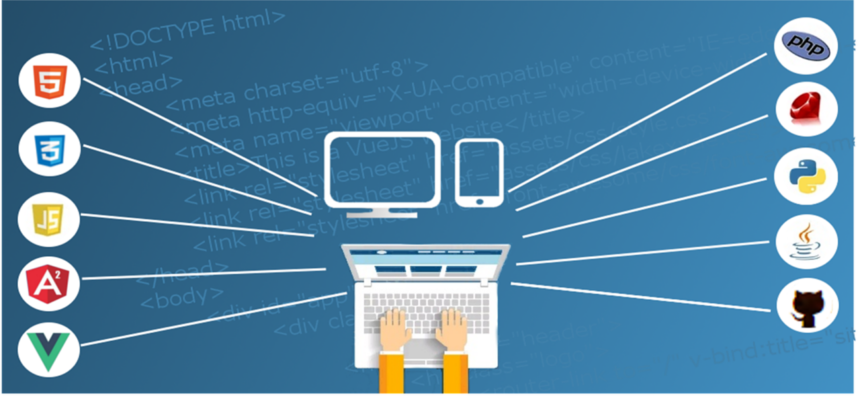Introduction:
We are a part of generation where having an online presence is essential for businesses, bloggers, and individuals alike. One of the major steps that is required in establishing this presence is choosing the right web hosting service. we cannot deny that there are so many options available, and it becomes quite challenging to choose which type of hosting will align with your website needs.
Well, for all the people around who are confused about which one to choose, this article is a choice. In this article we will explore about different types of web hosting services, that will help you to make an informed decision. Keep on reading to know about it in detail!
Types of web hosting services:
In this section we explore about different types of web hosting services in detail with all pros and cons:
Shared Hosting
The first one we have in our list is Shared hosting. This is one of the most common and affordable types of web hosting available. As the name suggests, shared hosting involves multiple websites sharing a single server’s resources, including CPU, RAM, and disk space. For all those who are having a small websites, blogs, and startups and want to come online can consider this type of hosting s this fits in their budget.
Pros:
- Cost-Effective: The plans of Shared hosting are generally inexpensive, and this makes them accessible for beginners and small businesses.
- User-Friendly: Most shared hosting providers offer easy-to-use control panels and one-click installations. This makes it easier for people with less technology knowledge to use it properly.
- Maintenance: The hosting provider will be responsible for handling server maintenance, including updates and security patches.
Cons:
- Limited Resources: As we have cleared that resources are shared, high traffic on other websites may have an impact on your website’s performance.
- Security Risks: Sharing a server with multiple websites comes up with security risks if any of the shared sites on the server are compromised.
- Less Control: Limited administrative control over server settings and configurations.
VPS Hosting
Virtual Private Server (VPS) hosting is a bit advance set up from shared hosting. It specifically utilizes virtualization technology to divide a physical server into multiple virtual servers. The divided servers will have their own dedicated resources. This is helpful in maintaining a balance between affordability and performance.
Pros:
- Dedicated Resources: Each VPS has its own resources. This contributes to better performance and stability.
- Scalability: According to the need of the websites the resources can be scaled up or down.
- Greater Control: With VPS, there will be root access available that is a must for custom configurations and installations.
Cons:
- Cost: VPS is More expensive than shared hosting. But still affordable for many small to medium-sized businesses.
- Technical Knowledge: For utilizing VPS completely, some level of technical expertise is required to manage and configure the server.
- Maintenance: Users are responsible for server maintenance and security unless managed VPS hosting is chosen.
Dedicated Hosting
Here comes the most expensive type of web hosting, Dedicated hosting. This provides an entire physical server exclusively for your website. This type of hosting is majorly in consideration for large websites with high traffic, such as e-commerce sites and enterprise-level applications.
Pros:
- Performance: Users can have a website with high performance and reliability with dedicated resources.
- Security: Dedicated hosting comes up with enhanced security as the server is not shared with other websites.
- Full Control: with dedicated hosting, there will be a complete control available over server configuration and settings.
Cons:
- Cost: One of the most expensive types of hosting.
- Technical Expertise: Requires significant technical knowledge to manage and maintain the server.
- Maintenance: Responsibility for all server maintenance and security measures.
Cloud Hosting
Cloud hosting is also among the considerable types of web hosting. This utilizes a network of interconnected servers to host websites. As a result, this offers high scalability and reliability. It’s an excellent choice for websites where the traffic is fluctuating and many other resources are needed.
Pros:
- Scalability: With cloud hosting, it becomes quite easy to scale resources up or down based on demand.
- Reliability: Cloud hosting offers high uptime and reliability as the website is hosted on multiple servers.
- Cost-Efficiency: Pay-as-you-go pricing models are there with cloud hosting that ensure you only paying for the resources you use.
Cons:
- Complexity: Can be more complex to set up and manage compared to traditional hosting.
- Cost Management: Potential for unexpected costs if resource usage spikes.
- Limited Control: Less control over server configurations compared to dedicated hosting.
Managed WordPress Hosting
Lastly the choice we have in our list is Managed WordPress hosting. This is specifically optimized for WordPress websites, offering enhanced performance, security, and support. It is an excellent choice for users who want a hassle-free experience with their WordPress sites and want to use it without much technical aspects.
Pros:
- Optimized Performance: In case of WordPress hosting the servers are configured specifically for WordPress, ensuring faster load times and better performance.
- Security: This comes up with enhanced security features such as malware scanning, automatic updates, and backups to keep the site safe.
- Support: Access to specialized support teams with expertise in WordPress.
Cons:
- Cost: Generally, Managed WordPress Hosting more expensive than traditional shared hosting.
- Less Flexibility: Limited to WordPress sites, and some plugins may be restricted due to security concerns.
- Control: Less control over server settings compared to VPS or dedicated hosting.
Conclusion:
Choosing the right web hosting service is an important decision that can significantly impact your website’s performance, security, and scalability. Whether you are just starting with a small blog or managing a high-traffic e-commerce site, understanding the different types of web hosting options is essential. Shared hosting is an excellent starting point for beginners, while VPS and dedicated hosting offer more resources and control for growing websites.
For WordPress enthusiasts, managed WordPress hosting provide optimized environments and tools to enhance your site’s performance and ease of use. Well, you can get in touch with PD Hosting for having the services available on your side. By making an informed choice, you can ensure a reliable and efficient hosting solution that supports your online presence now and in the future.


